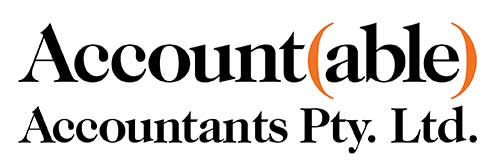THINKING OF BECOMING AN INDEPENDANT CONTRACTOR?

THINKING OF BECOMING AN INDEPENDANT CONTRACTOR?
If you are thinking of making the switch from being an employee to a subcontractor there are many things to consider.
Some workers will simply switch from being an employee to a subbie with the same business, whilst others will start contracting to various different businesses. However, there are a few decisions and steps involved before you go ahead and do this.
As a contractor, you can be an individual (sole trader) or working in your own company, partnership, or trust. You might call yourself an independent contractor, sub-contractor or a ‘subbie’.
As a contractor, you’re running your own business. You will need an Australian business number (ABN), and you need to pay your own tax and super. Unlike employees you negotiate your own rates and allowances and are not entitled to paid leave if you get sick or injured. A subcontractor is also legally responsible for their own work and may have to fix anything you damage in the course of your work.
Common Subcontractors and industry
A lot of businesses will bring in an outside company or an independent contractor to perform specific parts of a contract or project. In most cases a company subcontracts another business to perform a task that cannot be handled internally. Some of the most common industries that hire contractors are:
- Construction & Trades
- Information Technology
- Creative Industries such as Music and Film
- Owner Drivers and Forestry Contractors
- Ridesharing and Food Delivery Services.
What should consider before you become a contractor
The first thing you should do is seek professional advice from your accountant who will advise and guide you along this path. Your accountant will advise on the right business structure for you, your tax obligations with the Australian Taxation office, recordkeeping options, through to the types of insurances you will need for your business. All of these will need to be put into place before you go out and start contracting. Knowing these obligations from the start can save you time, money and stress later on.
How to become an independent contractor
Once you have made the decision to become a contractor you will need to work through the list below to get yourself set up and ready to go
- The right Business Structure for you
- Understand your tax obligations
- Register a Business Name
- Register for ABN
- Register for GST (If you expect your annual income to exceed $75,000)
- Register for PAYGW & Workcover (If you intend on employing staff)
- Apply for relevant Licenses and Registrations
- Protect your Intellectual property
- Find the right Insurance
- Open a business bank account
- Record Keeping
- Negotiate any potential contracts and conditions
Tax obligations and Superannuation entitlements
Independent contractors work under their own ABN and pay their own taxes, goods and services tax (GST). Although not compulsory it highly recommended you contribute to super as a way of saving for retirement. You can either set up a regular transfer into super or transfer a lump sum when you have enough cash flow.
Wages and conditions
As an independent contractor negotiates their own rates, allowances, payment terms and extra conditions with each contract. It is important to put money aside for holidays and sick days, as no one else will be paying you for this time.
Entering into a business contract
You may be entering into a business relationship involving some type of contractual commitment or obligation. Managing your contracts and business relationships is very important. It is advisable (where possible) to make sure your business arrangements are in writing to avoid problems when trying to prove a contract existed. If it is not possible to have a written contract make sure you have other documentation such as emails, quotes or notes about your discussions to help you identify what was agreed such as:
- Subcontracting arrangements
- Period of contract
- A description of the goods and /or services that your business will receive or provide
- Payment details and dates
- Required insurance and indemnity provisions
- Damage and penalty provisions
- Special conditions
Before signing a contract make sure you read every word, including the fine print and ensure that it reflects the terms and conditions that were negotiated. Keep a copy of the signed contract for your records.
Legal liability and insurance
An independent contractor is legally responsible for their own work. You need to look at what types of insurance is best for your own needs such as:
- Personal accident and Sickness Insurance
- Income Protection Insurance
- Property & Assets Insurance – Premises, Products, Vehicles & Equipment
- Professional Indemnity, Public Liability Insurance
- Product Liability Insurance
- Third Party Personal Injury and Vehicle Insurance
Open a Business Bank Account – Don’t mix personal with business
Open a separate bank account, solely for business purposes. Use this account for business spending only and ensure all customer payments go into this account. Mixing business and personal spending can turn into a headache very quickly and can be easily avoided.
Plan for any Tax, GST and Superannuation payments
Open a separate bank account and transfer a percentage of your income each month or quarter to cover paying any GST (if you are registered), tax and superannuation. This way you will avoid the worry of coming up with the money and fulfill your ATO obligations.
Record Keeping – Have a system set up early
A software program like XERO is ideal for subcontractors. It is user friendly and can be used on your mobile phone while you are out on site. If Bookkeeping is not for you, you should invest in a bookkeeper which will save you the time and keep everything up to date.
Finally
Becoming a subcontractor can definitely be financially rewarding for tradesmen and other workers, but make sure you do your homework first to ensure the transition runs smoothly.
Account(able) Accountants can help you make this transition to run smoothly and make sure you are set up correctly from the beginning and ensure you are compliant with the Australian Taxation Office. Call us on 5366 1000 and press 1 for an appointment with an accountant to discuss your situation and what is best for you.
